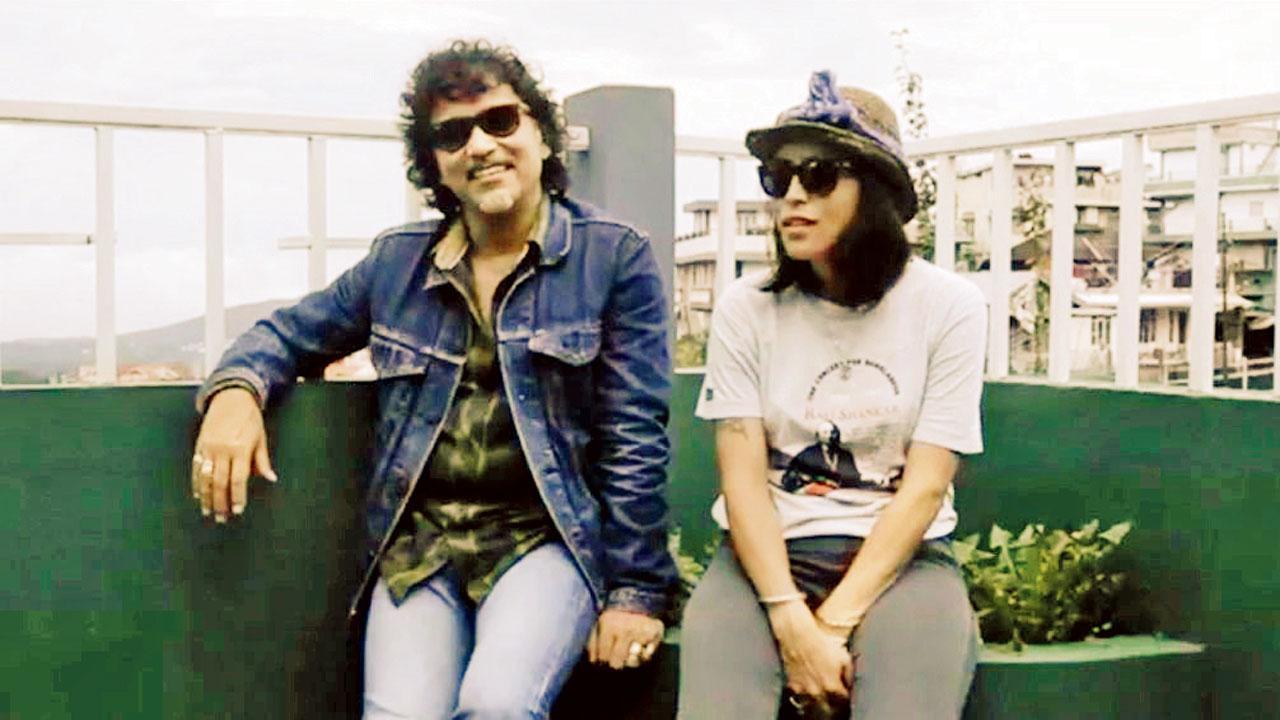Rockumentary: Evolution of Indian Rock, gives you sense of recognition for the underground local scene that still touched so many of us!

Rudy Wallang and Tipriti TIPS Kharbangar of the band Soulmate in a still from Rockumentary: Evolution of Indian Rock
The first thing journalistic I ever did in life was to pull off a fraud—when I was around 13! Knowing that the Bombay-based rock band Indus Creed (formerly known as Rock Machine), were performing in Delhi one night, and staying at the Taj, I called up the hotel posing as a reporter from MTV.
The receptionist miraculously put me through. It took next to nothing for me (along with my elder brother, and his friend, posing as cameramen) to be invited over to their room, so I could interview Indus Creed. The piece was eventually published in Target, a lovely children’s magazine at the time.
Which tells you two things about the early ’90s. The desi rockers Indus Creed had proper/die-hard fanboys (like us) in Delhi. And that the band was still casual/accessible enough to let a li’l kid in, to begin with.
Spend an hour over a serious conversation about music—bassist Mark Selwyn joking about their next album being called Third Coming, because it’ll be their ‘turd’ album, is all I can remember from it. And they were aware, perhaps, the boy had just fibbed about being a journalist at all!
That’s before they stepped on to a massive stage, with fairly fresh fans, mildly head-banging to their original numbers, say ‘Top of the rock’; but, in particular, the ballad ‘Pretty child’ from their 1990 album, Second Coming. Why the latter? Because MTV, new to India in 1993, had made a stunning video of that song for the channel, and ranked it No. 9, among 100 greatest tracks in the world that year!
This probably made everyone believe the band was of global, read western, standards. Which for Indians was the only measure for rock. Desis of my vintage have grown up on local bands being judged only on how well they could pull off cover versions.
This inspired a full generation of long-haired mimicry musicians, who’d probably call their own Delhi neighbourhood Carol Bag (for Karol Bagh), if it was in a track, except it wouldn’t be, because all that they had to do was mug up accents/lyrics of 60s/70s/80s rock—the obscurer the better.
Failing which, they’d be booed off anyway, by a crowd wishing to re-listen on stage songs/bands they’d picked up from bootlegged cassettes, and worshipped their histories in snazzy rock encyclopedias. A scene so underground, you’d have to pass a GK test to enter it, and find no one besides an echo chamber of cultural snobs inside!
Did Indus Creed and ‘Pretty child’ mildly alter English language rock in India, even if for only a teeny weeny bit? I do think so. As does Abhimanyu Kukreja in his rare, joyously researched, much-needed documentary, Rockumentary: Evolution of Indian Rock (playing at select PVR theatres).
Although he counts Gary Lawyer’s deeply derivative video/number, ‘Nights on fire’ as another tipping point (and I’m not too sure). Amit Saigal’s Rock Street Journal, published from Allahabad, promoting desi bands through coverage/gigs/albums happened around the same time. Especially the Great Indian Rock (concert) series. We similarly adored a lesser-known local magazine called Connect, I remember.
For, what’s Indian rock history before that? It roughly starts with bars/venues (Mocambo’s, Moulin Rouge, Blue Fox) on Park Street in Calcutta in the ’60s. Its surviving saint is Lou Majaw, who’s been holding Bob Dylan’s birthday concerts in Shillong for four decades now.
This was followed by Simla Beats, sponsored by a cigarette brand in the ’70s, that promoted Indian rock. They were called beat groups then. Among the high notes is The Savages, which got an international record/label deal—its best-known member? Remo Fernandes! Or Susmit Bose and his breakout album, if you may, called Winter Baby. Sidharth Bhatia’s book India Psychedelic does an equally superb job of surveying this counter culture.
On the import side, barring Beatles in Rishikesh and the double White Album of course, Kukreja reckons the turning point was March 25, 1980. That’s when The Police formally performed at Rang Bhavan—giving Bombay and Indian rock an iconic venue, and Indians the first taste of full-power global act. Apparently the organisers of the concert had assumed they were inviting the British police (brass) band. If this is true, it’s frickin’ amazing!
Rang Bhavan is a pile of moss and shit, as Kukreja revisits to find out. Indus Creed, I guess, don’t exist. But Parikrama, Pentagram probably do; as does Pune’s Agnee, but in an entirely another form. So where’s Indian rock now? Exactly where West-led stand-up comedy or European art-house inspired Indian parallel cinema is. It’s become its own thing.
You can hear it, in Malayalam (through, say, a band called Avial), or in massy Hindi, which is so much of what new-age Bollywood has been (over the past couple of decades or so anyway)—Rahman, Shankar-Ehsaan-Loy, Amit Trivedi, Vishal-Shekhar… You admire the riffs, mildly head-bang to the drums too—most of it is mainstream sound. They just don’t call it Indian rock anymore.
Mayank Shekhar attempts to make sense of mass culture. He tweets @mayankw14. Send your feedback to mailbag@mid-day.com
The views expressed in this column are the individual’s and don’t represent those of the paper.
Rudy Wallang and Tipriti TIPS Kharbangar of the band Soulmate in a still from Rockumentary: Evolution of Indian Rock
 Subscribe today by clicking the link and stay updated with the latest news!" Click here!
Subscribe today by clicking the link and stay updated with the latest news!" Click here!









